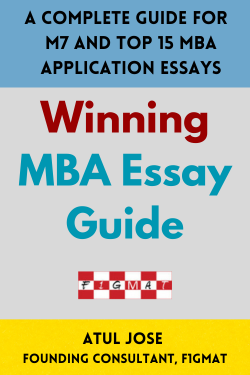Thinking about the structure while drafting MBA essays is not recommended but choosing themes that have universal appeal is essential to get the most out of the writing process.
Write freely, but use these three themes when you feel that you are getting lost in the writing process:
1) Inclusion
Inclusion was a controversial subject even in the 20th century.
Transitioning from aristocratic, autocratic, and colonial rule, millions of citizens in newly freed countries felt empowered when Inclusion became a critical pillar for the constitution and how fundamental rights were phrased.
Now, the controversy in a capitalistic and meritocratic society like the US on affirmative action or DEI arises from political ideologues and from denial of the racist history of the country.
Even outside the US, what seem like homogenous societies with limited diversity, there are challenges for creating inclusive policies.
The tribal mentality – to support the goals of the group even if it means jeopardizing one’s own personal goals is human nature.
Any ‘outgroup’ vs. ‘ingroup’ argument will question the concept of ‘inclusion.’
In such sensitive times, how you word inclusion in the draft essay is critical.
For schools with no clear public position, choosing centrist examples that appeal to consensus topics – building structures to address climate change, controlling inflation, accessing healthcare, power of education, and uplifting the underprivileged through mentorship will appeal to the admissions team regardless of their political leaning.
For schools with left-leaning public positions, inclusion examples should be on empowering a minority peer or the socio-economically disadvantaged
The word inclusion when it regresses to an aggressive form of ‘equality’ bordering on communism where top-down enforcement is hinted, even progressive left-leaning US universities will not take such narratives in a positive light.
For international students, remember that US schools’ values are primarily capitalistic, followed by democratic.
The examples and themes that you choose to write in the MBA essay draft should include both.
For example, Empowering the underprivileged in your community through education should have the goal of increasing the earning capacity of the person.
To find the balance in the narrative, read the examples included in F1GMAT’s Winning MBA Essay Guide.
2) Integrity
In modern world, being a person of integrity is a tough choice. When you are part of groups and cultures where living with integrity is considered a weakness, choices you make are even more tougher. The motivation of the ‘individual’ to rise above the culture requires courage and contrarian thinking – two qualities that define great CEOs.
If the city, culture (professional and family), and nationality – are all atypical of the person’s journey and decisions, a mundane narrative on making tough decisions becomes a magnified version of the person’s integrity.
Another great aspect of capturing Integrity in MBA essay drafts is its close association with ethics.
Taking advantage of asymmetrical information that you obtained by applying your superior due diligence skills is a gift in Finance.
Taking advantage of weakness in a system (from lack of disclosure or lack of incentives) to acquire asymmetrical information is considered unethical or part of insider trading in Finance – an offence punishable by jail time.
The thin line between profitability and behaving with integrity elevates narratives for Finance applicants. It is all about offering enough context to capture that thin line. Pour the details and then, with editing, introduce believable supporting elements using storytelling.
The best examples of individual integrity transmit to behavioural change within a team and organizations.
3) Humility
Humility is the close cousin of modesty – a tenant of conservative cultures. But all behaviors in conservative cultures (job function, city, or region) need not necessarily demonstrate humility as an individual. This strange dichotomy, when exaggerated in the MBA application writing process, leads to many applicants not even trying to capture all their greatest achievements.
When your essays are compared with equally impressive peers, the maturity not to overestimate or in most cases to underestimate is a hallmark of humility. That presents a strange problem when you are writing freely in an MBA Essay draft – you will start self-censoring accomplishments from the assumptions that such examples or expressions would be considered as a sign of arrogance or insecurity.
Applicants address the humility-accomplishment paradox by giving recommenders the free reign to ‘praise’ them with data while their tone right from draft essay is to underplay the accomplishments while making the narrative focus on the ‘larger problem’ or the beneficiary.
The approach works for most 1-5% top achievers. But if you are in the 5-20% of top achievers, the competition is 5x to 10x times higher. The admissions team struggles to find differentiating qualities to categorize applicants as ‘confident and grounded.’
More than Tone: When 5-20% of top achievers use a similar tone, one way to differentiate in draft essays is to write about your weaknesses.
A decade ago, there were explicit questions on weaknesses. Now, INSEAD is the only school that explores all aspects of an applicant – including their weaknesses in essays.
So, how will you break down examples and incorporate them in essays that do not ask about your weaknesses?
Failures: A refreshing aspect of reading essays of accomplished clients is their superior EQ to share failures. The wording is careful not to convey the failure as an error in judgment, but as an error in perception that arrived from the complexity of the problem or the impact of external factors on assessing the problem. In most cases, the ownership is clearly taken by the client for the failure but there is a sense of translating the failures to multiple learnings. By reading the draft, I felt curious to understand the problem the person was trying to solve instead of the person taking all the attention. Such wording requires multiple iterations.
The biggest advantage of expressing humility is that you are showing that you are open-minded to learn from others.
Teachable candidates foster classroom and case discussions. The ‘overall’ experience is determined by your maturity to take feedback and learn from your peers. That is why one of the Common LOR questions is about feedback. Schools want to measure your humility and open-mindedness.
Capture humility in your tone and examples.
 I will teach you how to bring your life stories to essays faster with F1GMAT's essay guides. Download below or subscribe to F1GMAT's Service and work with me - Atul Jose, Author/Editor/Founding Consultant, F1GMAT(16 Years of helping applicants gain admissions to M7 and Top 30 schools)
I will teach you how to bring your life stories to essays faster with F1GMAT's essay guides. Download below or subscribe to F1GMAT's Service and work with me - Atul Jose, Author/Editor/Founding Consultant, F1GMAT(16 Years of helping applicants gain admissions to M7 and Top 30 schools) 